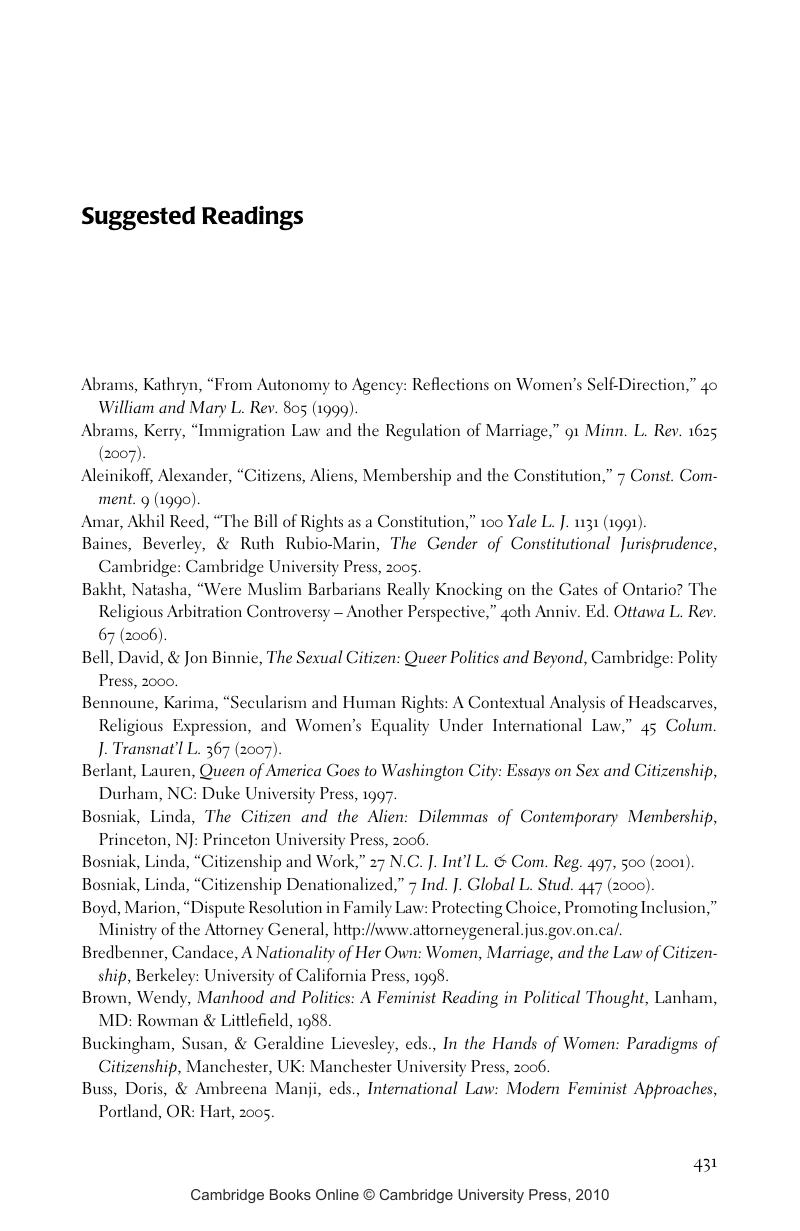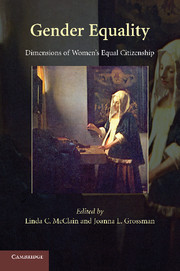Book contents
- Frontmatter
- Contents
- Contributors
- Acknowledgments
- Gender Equality
- Introduction
- PART I CONSTITUTIONAL CITIZENSHIP AND GENDER
- PART II POLITICAL CITIZENSHIP AND GENDER
- PART III SOCIAL CITIZENSHIP AND GENDER
- PART IV SEXUAL AND REPRODUCTIVE CITIZENSHIP
- PART V GLOBAL CITIZENSHIP AND GENDER
- Suggested Readings
- Index
- References
Suggested Readings
Published online by Cambridge University Press: 05 August 2012
- Frontmatter
- Contents
- Contributors
- Acknowledgments
- Gender Equality
- Introduction
- PART I CONSTITUTIONAL CITIZENSHIP AND GENDER
- PART II POLITICAL CITIZENSHIP AND GENDER
- PART III SOCIAL CITIZENSHIP AND GENDER
- PART IV SEXUAL AND REPRODUCTIVE CITIZENSHIP
- PART V GLOBAL CITIZENSHIP AND GENDER
- Suggested Readings
- Index
- References
Summary

- Type
- Chapter
- Information
- Gender EqualityDimensions of Women's Equal Citizenship, pp. 431 - 436Publisher: Cambridge University PressPrint publication year: 2009

